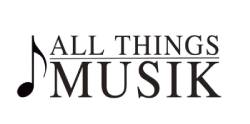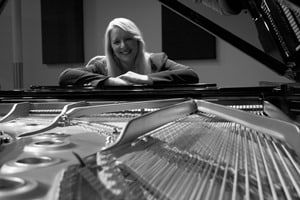child
How Old Should My Child Be When Starting Piano Lessons? Ask the Music Teacher!
How Old Should My Child Be for Piano Lessons?
Three Tests to Consider If They’re Ready
By Emily Kline
The phone rings on a Friday afternoon and a curious dad asks me, “My daughter wants to take piano lessons but I think she’s too young. What age do you recommend kids start taking piano lessons?”
His common question doesn’t have a one size fits all answer but generally I recommend about age six. Of course we’ve all heard of child prodigies who started playing an instrument at age five or younger but those are the rare exceptions.
If your child is old enough to read, can focus for 30 minutes and knows the difference between the right and left hands, then chances are they’re ready to start piano lessons.
1. Is Your Child Old Enough to Read?
If your child can read basic words, letters and numbers on their own, they have a key ingredient in place for a successful piano start. This skill can be strengthened of course over time with parental and school involvement. During a typical piano lesson, a student will see more than just music notes. Numbers one through five appear in most beginners lesson books. Titles to songs and lyrics as well as some basic directions are on every page. The musical alphabet, “A” through “G” is one example of important letters they’ll encounter. During the lesson, teachers will often highlight words, letters and numbers or write them in with pencil. Many teachers require an “assignment notebook” where practice instructions and side work is recorded. Parents should review these notes with their student to ensure the child understands the words written. A child who struggles with reading words, letters and numbers could develop frustrations with piano lessons.
2. Can Your Child Sit at the Piano for 30 Minutes?
Most piano teachers teach lessons for 30 minutes or more. For a new student, a 30 minute lesson is long enough. If your child is overly wiggly, can’t refocus after a gentle reminder or interrupts the lesson with non-piano topics, it’s probable they need to practice these skills in preparation for the start of piano lessons. Much of what a child learns about piano happens during practice sessions. Practicing for a minimum of 10-15 minutes at a time is a good way to strengthen their endurance and build focus during the early days of piano lessons. If your child likes to ask non-piano related questions, encourage them to limit their questions to one at the start of the lesson and one at the end. Good teachers understand children’s curiosity but teachers know you’re paying them to teach piano not to play “Twenty Questions.”
3. Does Your Child Know the Difference Between Their Right and Left Hand?
Most adults don’t think about this important milestone in a child’s development as critical for a successful piano experience. Piano is a two handed instrument with notes places on two “staffs” each “read” by a different hand. A teacher will refer to the right or left hand many times during a lesson. Testing your child and working on this skill together is vital before investing in lessons. Playing some games together will make reinforcing this skill fun.
What Should I Do If My Child Is Not Ready for Piano Lessons Yet?
If your child doesn’t pass these three tests then it’s time to help them in these areas while cultivating their interest in music. Reading with your child is a sure fire way to improve their reading skills. Make sure you mix into your reading routine stories about music and perseverance because those topics will reinforce instruction from the teacher during lessons. Also, having your child pick some of their books will give them a sense of ownership. Allowing your child to pick some of their music once they are well into their piano playing journey will help them maintain interest.
Sitting still is a skill kids need to learn just like any other skill. Like music lessons, there is no substitute for practice. Have them sit still for story time, meals, and hands-on activities like Play-doh or art work. Build up the time they sit still until 30 minutes is easy. Not only will this practice help prepare your child for piano lessons, but you’ll be glad the next time you’re with your kids at church service, a waiting room or a restaurant.
Like sitting still and learning to read, there is no shortcut to learning the difference between the right and left hand. Daily tests of their muscle memory and comprehension in the form of games can make this a fun exercise. Rewards, humor and positive reinforcement will be more effective than your expressions of disappointment or frustration. Your efforts here will make piano lessons more enjoyable and a confidence boosting experience for a child who doesn’t need to pause and think hard about what hand plays what staff.
Finally, make music a part of your family’s life. Take your children to concerts, enroll them in community education classes about music discovery, and sing along with them during road trips to name a few. Expose your child to many different musical genres. Find songs with fun beats, inspiring lyrics, catchy melodies and fascinating complex blends of sounds. Classical, pop, country, and jazz; you’ll never know what genre will motivate your child to practice and enjoy music for a lifetime. So get going and set your child up for a musical journey that will benefit them throughout their academic and personal lives!
Piano or Keyboard? Ask the Music Teacher!
“Should I Buy a Piano or a Keyboard for Piano Lessons?”
By Emily Kline
The phone rings at noon on a Monday. “All Things Musik, this is Emily, how may I help you?” The curious mom on her lunch hour says, “Hi, my child wants to take piano lessons but I don’t know where to begin.”
Inevitably, one of her questions is about buying a piano. Although All Things Musik is not a piano retailer I have advice for families asking this important question.
I think the two big questions to think about when considering a piano purchase are:
- Do you think your child or children will take piano lessons (and practice) for many years?
- How much do you want to invest (yes, it’s an investment) in a piano?
There are several related questions that fall under the umbrella of these two questions.
First question: Do you think your child or children will take piano lessons (and practice) for many years? If the answer is “I don’t know” then you may want to consider a bargain basement priced piano or a quality keyboard. The principle advantage of keyboards is their portability. They’re low maintenance, and with headphones you won’t be hearing the sometimes rough practice sessions. A good keyboard should have 88 weighted keys and a foot pedal. Expect to pay at least $450 for a new keyboard.
If your child loves taking lessons after a year or so (or you insist they stick with it for a while) then a piano purchase is probably right for you.
Second question: How much do you want to invest (yes, it’s an investment) in a piano? A quality, well maintained acoustic piano tends to hold its value and depreciate slowly or even appreciate. Many consider a piano a focal point in their home’s interior design and a piece of furniture. Beautiful grand and upright pianos can cost thousands to purchase but often last for generations. If taking out a huge loan for a grand piano is not for you, there are many good pianos on the private market or from reputable retailers like Schmitt Music (in Edina, Rochester, Brooklyn Center and elsewhere in Minnesota). These retailers stand behind their new and used pianos and cater to all budgets.
Technology is making its way into piano and keyboard manufacturing. Like a home computer, keyboards processors and parts won’t stay the latest and greatest very long. Expect the value of your keyboard to drop by half after 18-24 months. Many piano makers like Yamaha and Kawai are offering hybrid acoustic-digital pianos. Hybrids are excellent and affordable choices for tech-savvy kids who want that “cool” factor and parents want virtually no maintenance costs.
When considering a piano from a private seller, do your homework first. Read online reviews about the make and model. Ask the seller about the piano’s history. Ask how often it was tuned. Ask where it was in the house (heaven forbid it was in a garage). Ask why they’re selling it. Before you make the decision to buy, consider having a professional piano tuner inspect it. A cracked sound board or a horribly out of tune piano can affect your initial investment. All Things Musik can recommend a tuner who can inspect the instrument.
Part of your investment in a piano includes regular tunings. Humidity levels, the age and condition of your piano, and other environmental factors in your home can affect your tuning schedule. Once a year is minimal but your tuner can recommend otherwise. A well maintained piano will provide decades of beautiful music!
Whether you buy a keyboard or a piano, starting your child out on the right foot by providing an instrument they can enjoy practicing on regularly is very important.


